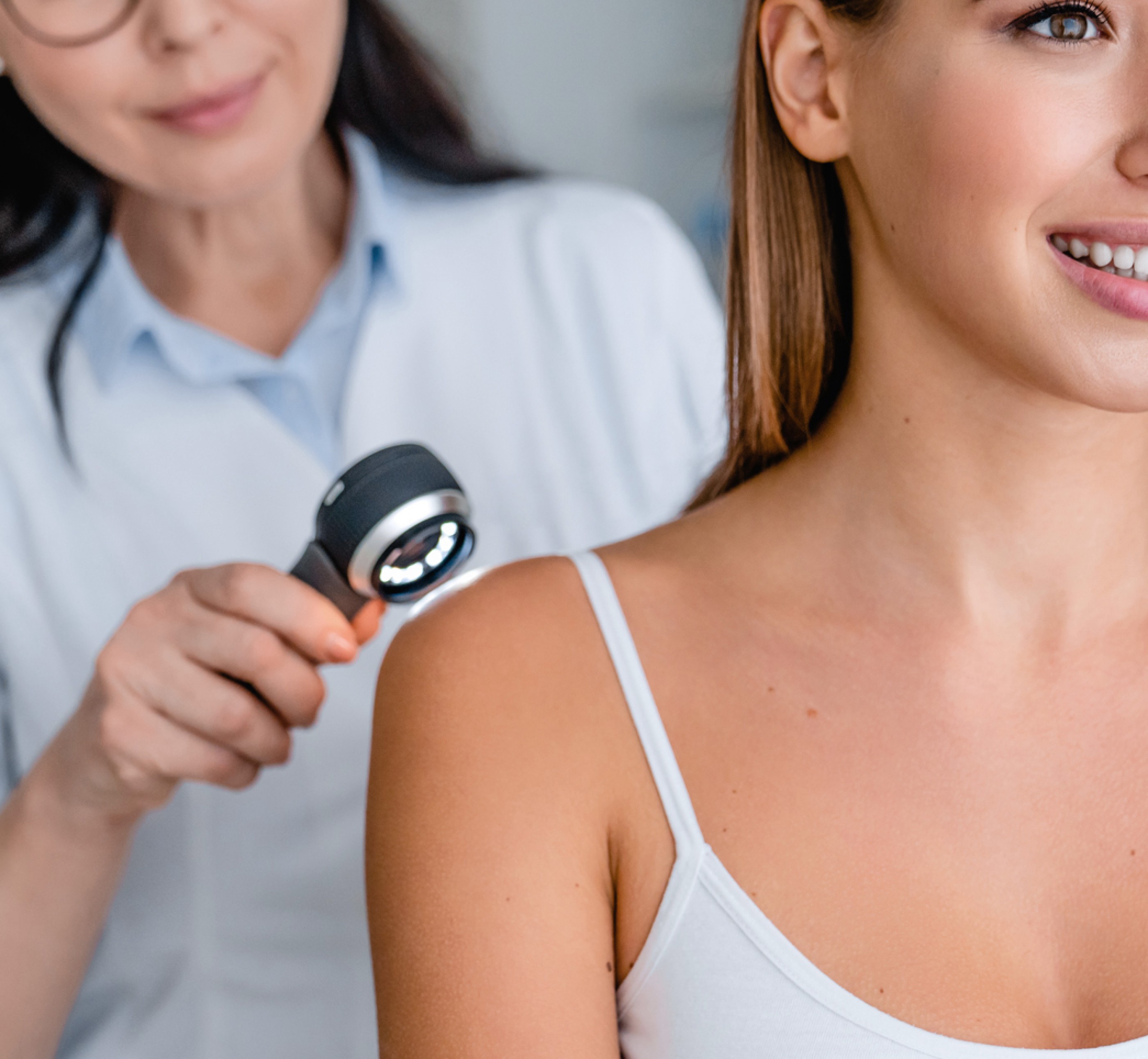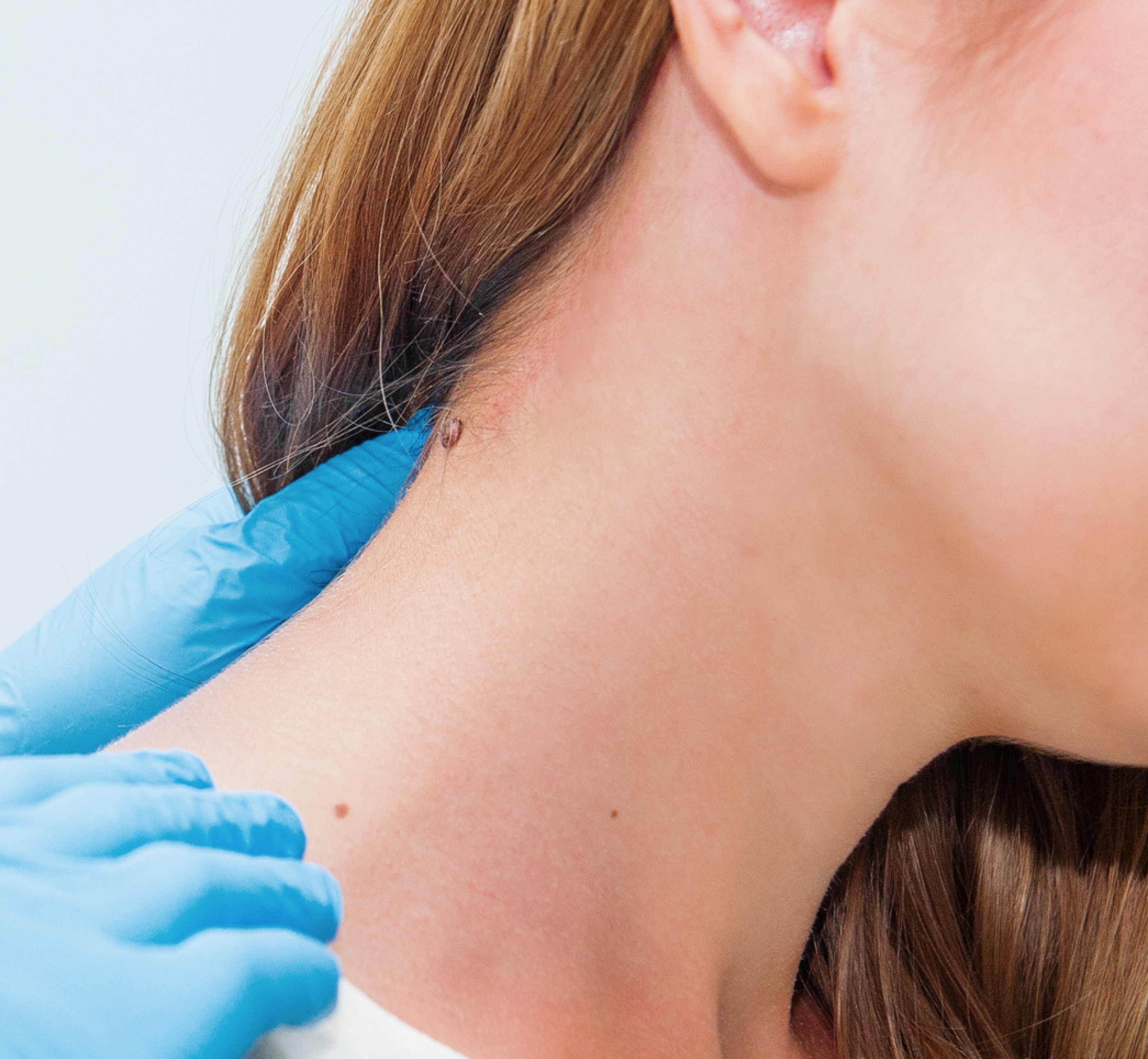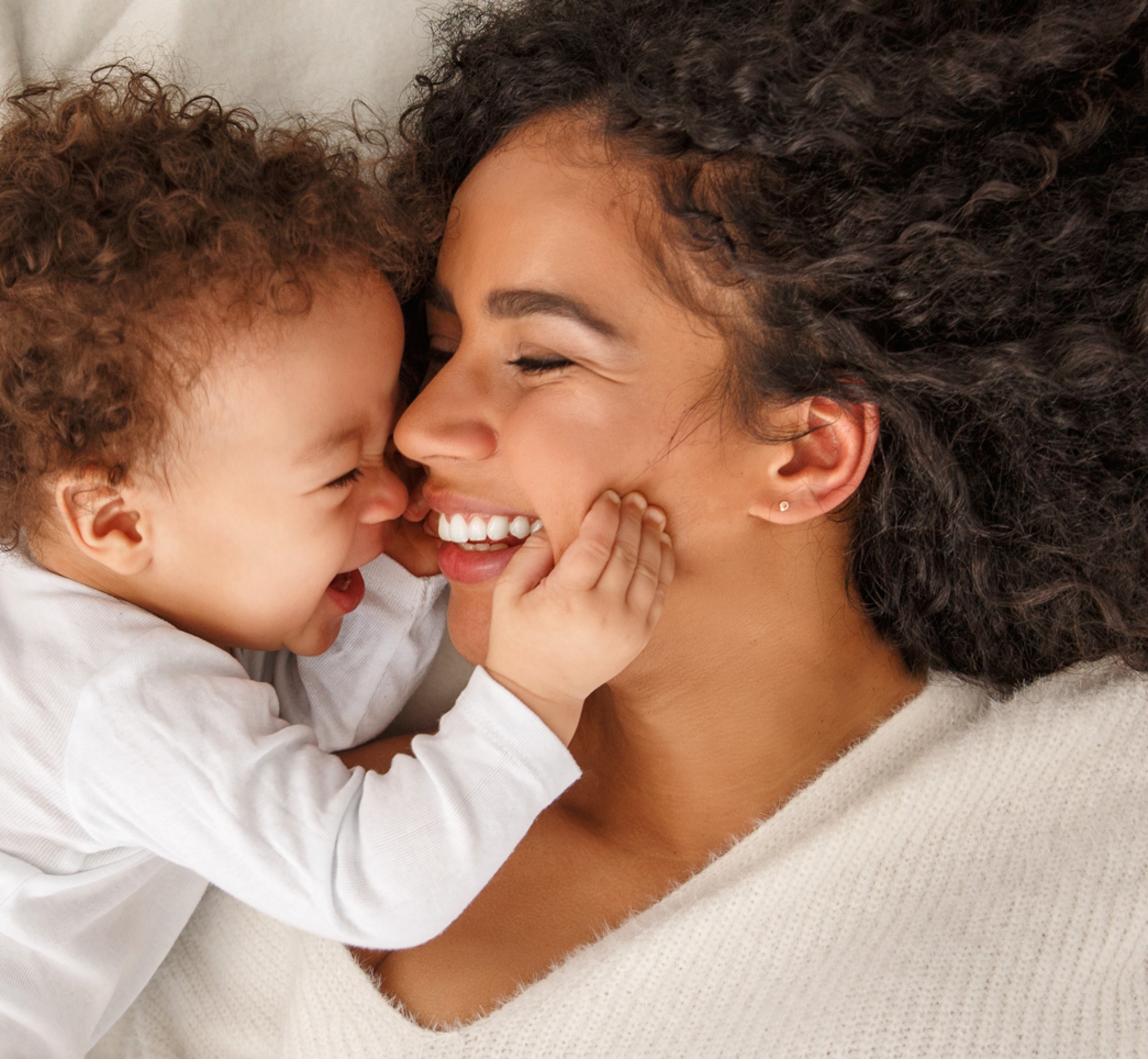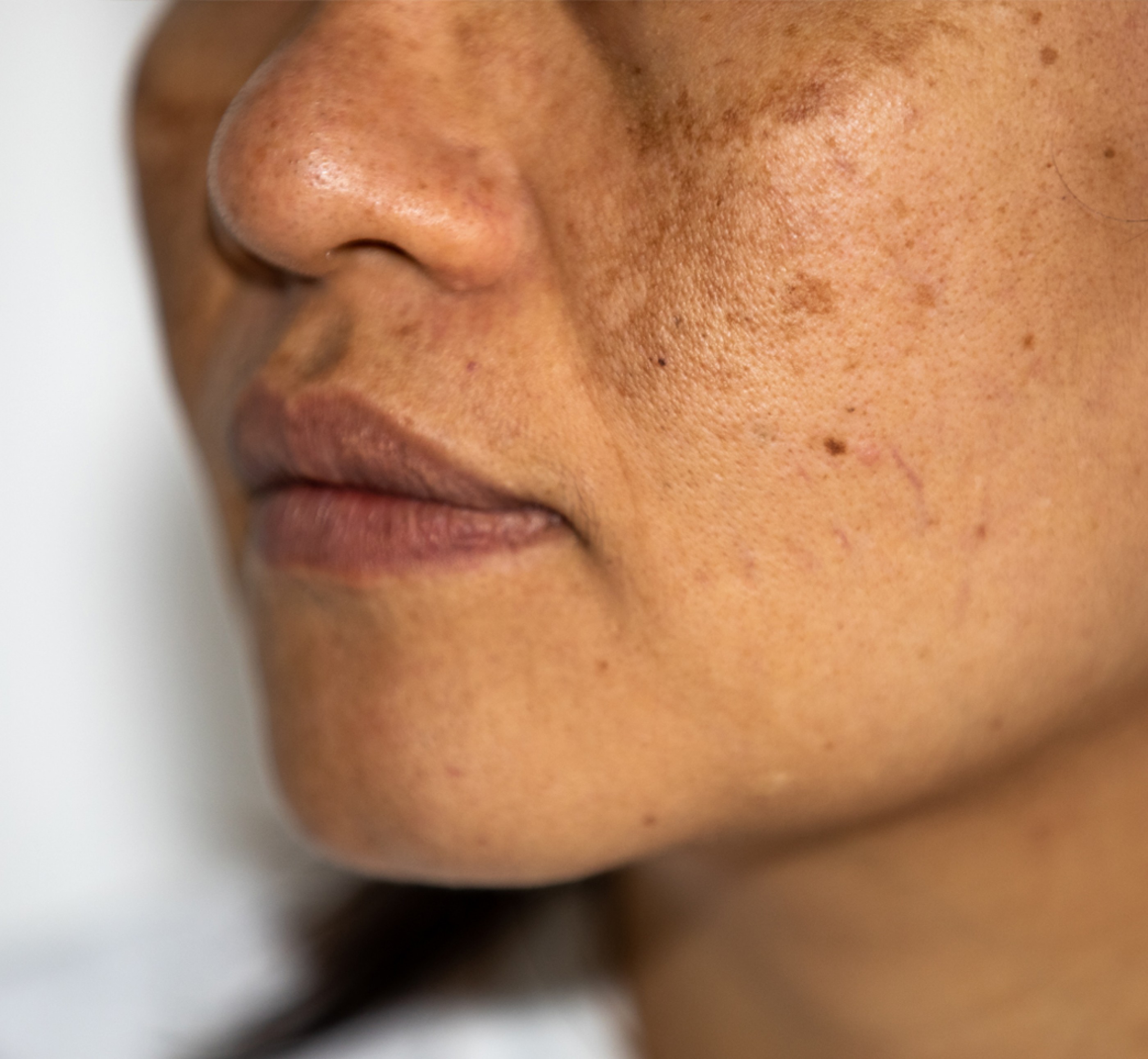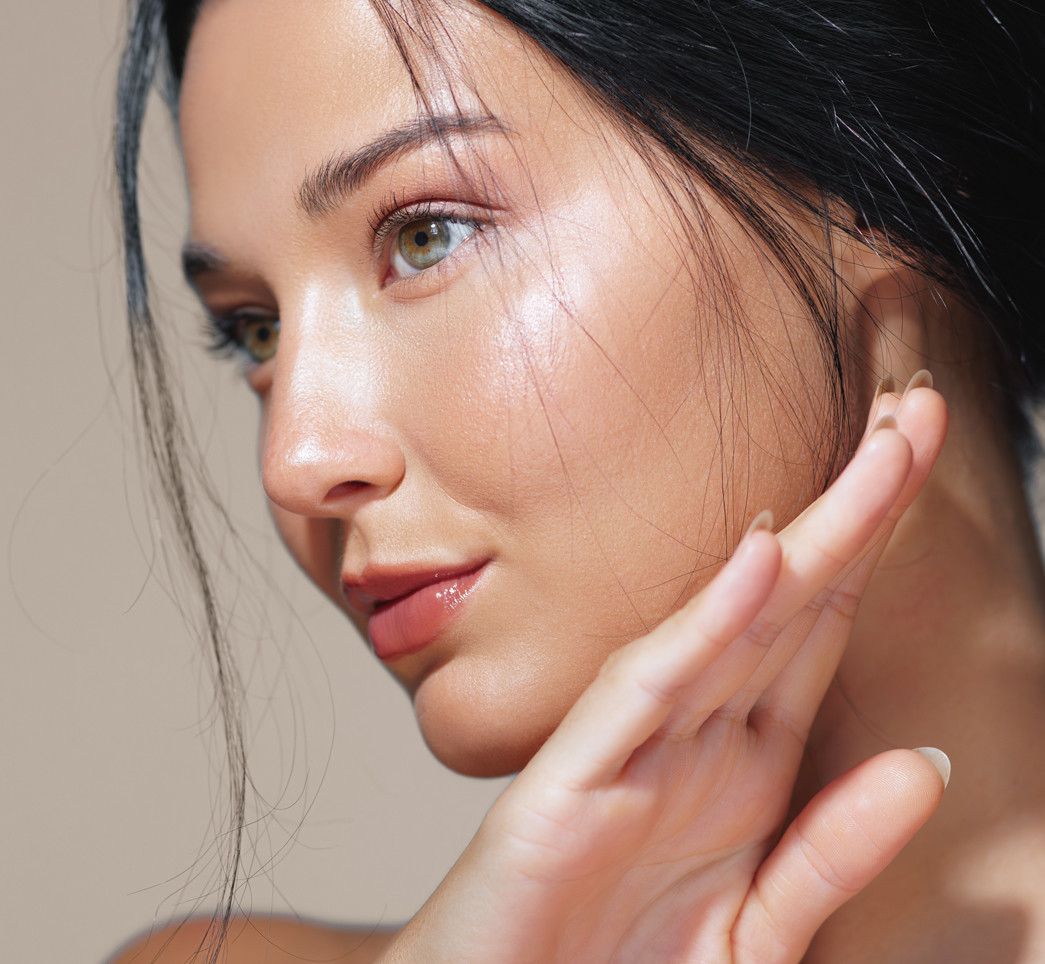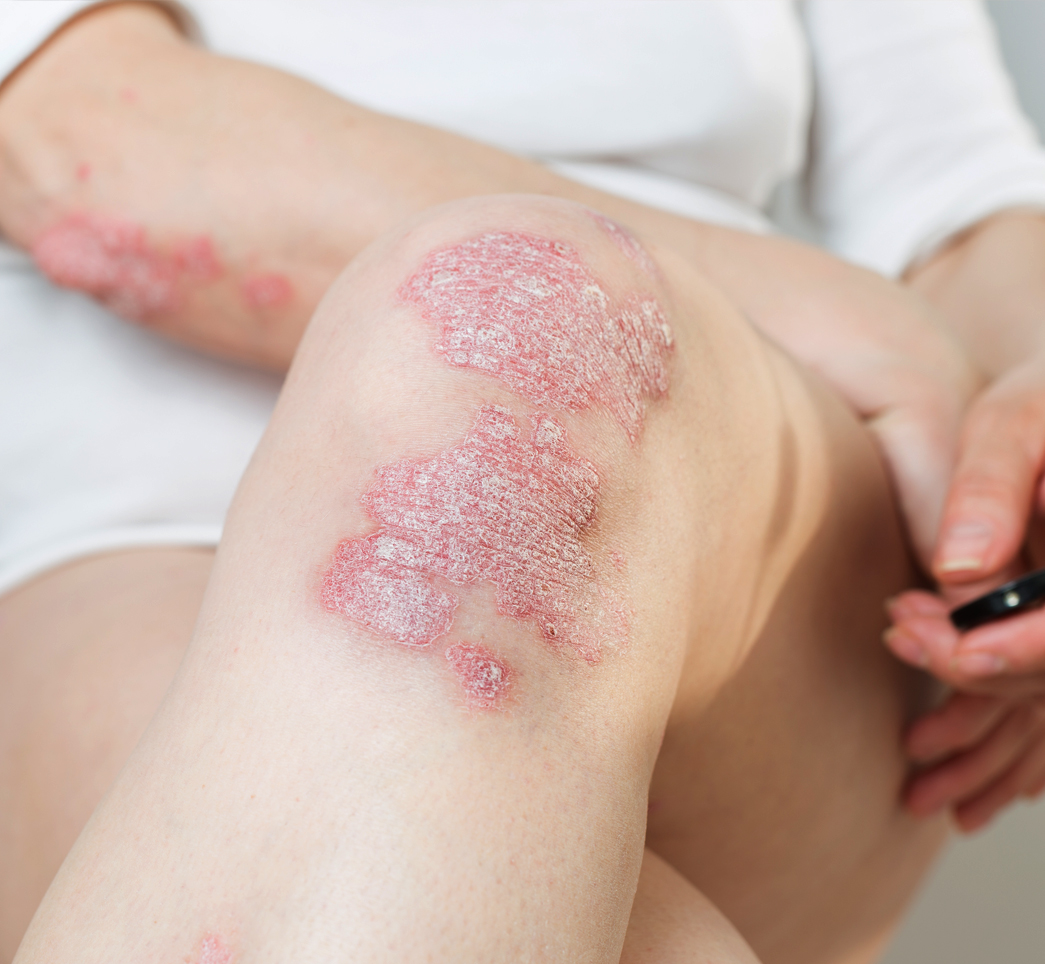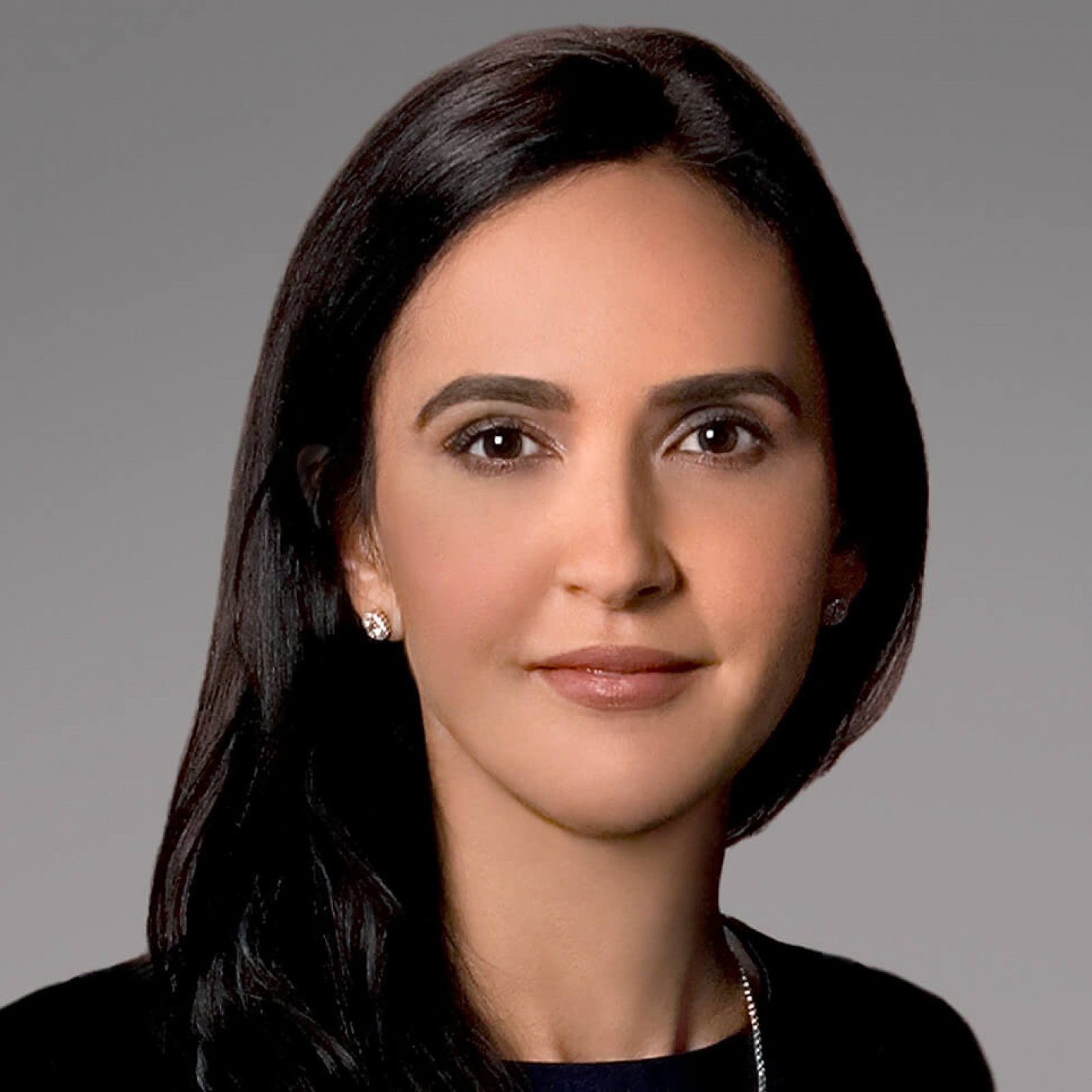The Blog
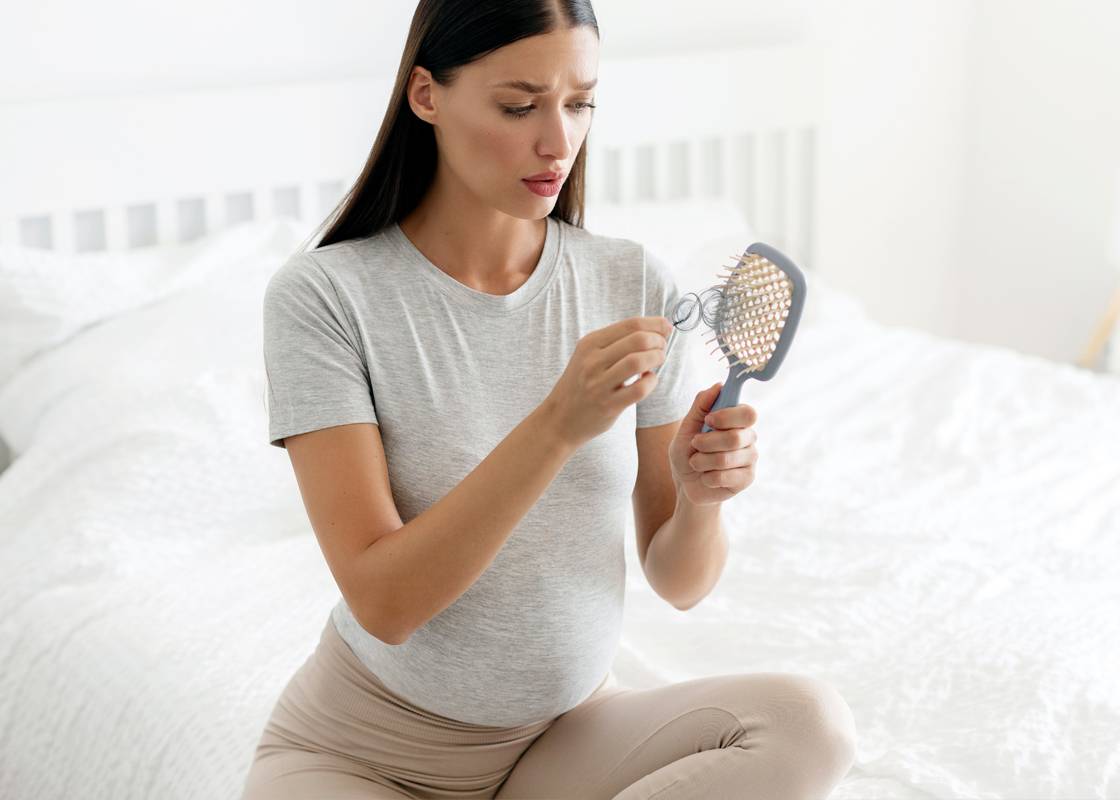
As a board-certified dermatologist at Johns Creek Dermatology, I thought I knew everything there was to know about skin, hair, and the changes our bodies go through. But when I was pregnant with my daughter, I quickly realized that knowing the science doesn’t always prepare you for the experience itself, especially when it comes to hair changes.
Like many women, I noticed my hair was fuller during pregnancy, something I loved and appreciated. But I also remember the worry that came months later when I began shedding hair -what felt like clumps- after giving birth. It’s an emotional experience, and even as a physician, I wasn’t immune to the “what ifs” running through my head.
If you’re experiencing hair changes during pregnancy or after delivery, you’re not alone.
Let me walk you through the facts, the science, and some reassuring advice -from one mom to another- to help you navigate this journey with confidence and calm.
Why Does Pregnancy Change Your Hair? Let’s Talk Science.
During pregnancy, your body is a hormone powerhouse. The surge in estrogen is actually a blessing for your hair during the first and second trimesters. Here’s why:
Estrogen Delays Hair Shedding
Normally, hair goes through cycles, growing (anagen), resting (telogen), and shedding (catagen). During pregnancy, higher estrogen levels keep more of your hair in the growth phase and delay the natural shedding phase.
The Pregnancy Glow Is Real
Many women experience thicker, shinier hair because the hair stays on your head longer. It’s why your ponytail may feel fuller, and you’re seeing less hair in the drain.
But here’s the tricky part: not everyone has this experience. For some women, pregnancy hair changes aren’t all positive.
Why Isn’t My Hair Doing What I Expected?
Every woman’s body reacts differently to pregnancy hormones. While your friend may be raving about her luscious locks, you might be noticing something very different. Here are a few common frustrations:
Greasy or Limp Hair
Higher oil production (thanks, hormones!) can make hair feel greasy.
Dryness and Breakage
For others, hair becomes dry and prone to breakage, which can be frustrating when you’re already exhausted.
Hair Growing Everywhere
Pregnancy hormones can cause hair to grow on your chin, belly, or back, places you’re not used to seeing it. Don’t worry; this usually resolves after delivery.
What I Tell My Patients: "Hair changes during pregnancy are temporary, and we can manage them together. Be kind to yourself, and give your hair some extra TLC."
Why Am I Losing Hair During Pregnancy or After Delivery?
If you’re seeing more hair fall than usual, it’s natural to feel concerned. Here’s the truth:
Hair Loss During Pregnancy
While rare, shedding during pregnancy can happen due to stress, nutritional deficiencies, or thyroid issues. If you’re worried, consult your doctor to rule out conditions like anemia or hypothyroidism.
Postpartum Hair Loss
This one is very common, and completely normal. After you give birth, your estrogen levels drop suddenly, and all that hair that stayed in the growth phase now sheds at once. This usually peaks 3–6 months after delivery.
The Science Behind It
It’s called telogen effluvium, a temporary shedding phase triggered by the hormone shift. It looks alarming, but trust me, your hair will bounce back within 6–12 months.
How Can I Keep My Hair Healthy and Strong?
Every mom-to-be wants to feel beautiful, confident, and in control, and healthy hair plays a role in that. Here’s what I recommend to all my patients:
Nourish From the Inside Out
Your growing baby needs nutrients, and so does your hair. Focus on foods rich in:
• Iron: Spinach, red meat, lentils.
• Protein: Eggs, chicken, nuts.
• Omega-3 Fatty Acids: Salmon, chia seeds.
• Biotin and Vitamins: Prenatal vitamins often provide these, supporting both you and your hair.
Choose Gentle Hair Care Products
• Look for sulfate-free shampoos to avoid drying out your scalp.
• Avoid excessive heat styling, pregnancy already changes your hair’s texture, and heat can cause breakage.
• Use a wide-tooth comb to avoid tugging on your strands.
Embrace Self-Care
Stress impacts everything, including your hair. Gentle scalp massages, hydrating treatments, and time for yourself can do wonders for your well-being.
When to See a Doctor About Hair Loss
While most pregnancy-related hair changes are normal, it’s always best to check in with a specialist if:
• Hair loss is sudden, patchy, or severe.
• You’re noticing other symptoms, like fatigue, weight changes, or skin issues.
Your hair can often tell a story about your overall health. Sometimes, conditions like thyroid imbalances or iron deficiency are at play, and we can treat these easily once we identify them.
You’re Not Alone, Your Hair Will Recover
I want you to hear this loud and clear: Hair changes during and after pregnancy are temporary. I’ve seen it countless times with my patients, and as a mom, I’ve been there too. Your hair may feel different now, but with a little patience and care, it will come back stronger and healthier.
Key Takeaways
• Hormones during pregnancy can cause both positive and frustrating changes to your hair.
• Postpartum hair shedding is normal and temporary.
• Focus on nutrition, gentle care, and stress management to keep your hair healthy.
• When in doubt, talk to a doctor, you’re not alone in this.
Pregnancy is a season of transformation, for your body, your mind, and yes, even your hair. Give yourself grace and seek help when you need it. After all, you're creating life, and that’s the most beautiful transformation of all.
Navigating Hair Changes with Confidence
Pregnancy brings many changes, and your hair is no exception. Whether you're noticing thicker strands or unexpected shedding, understanding what’s normal can bring peace of mind. At Johns Dermatology, and through our dedicated hair care division, Springs Hair Restoration, we’re here to support you with compassionate care and evidence-based solutions for every stage of motherhood. From scalp health to postpartum hair loss, we offer personalized evaluations and treatments designed with your needs in mind.
Have questions or concerns about your hair during or after pregnancy? We’re here to help, schedule a consultation today.




